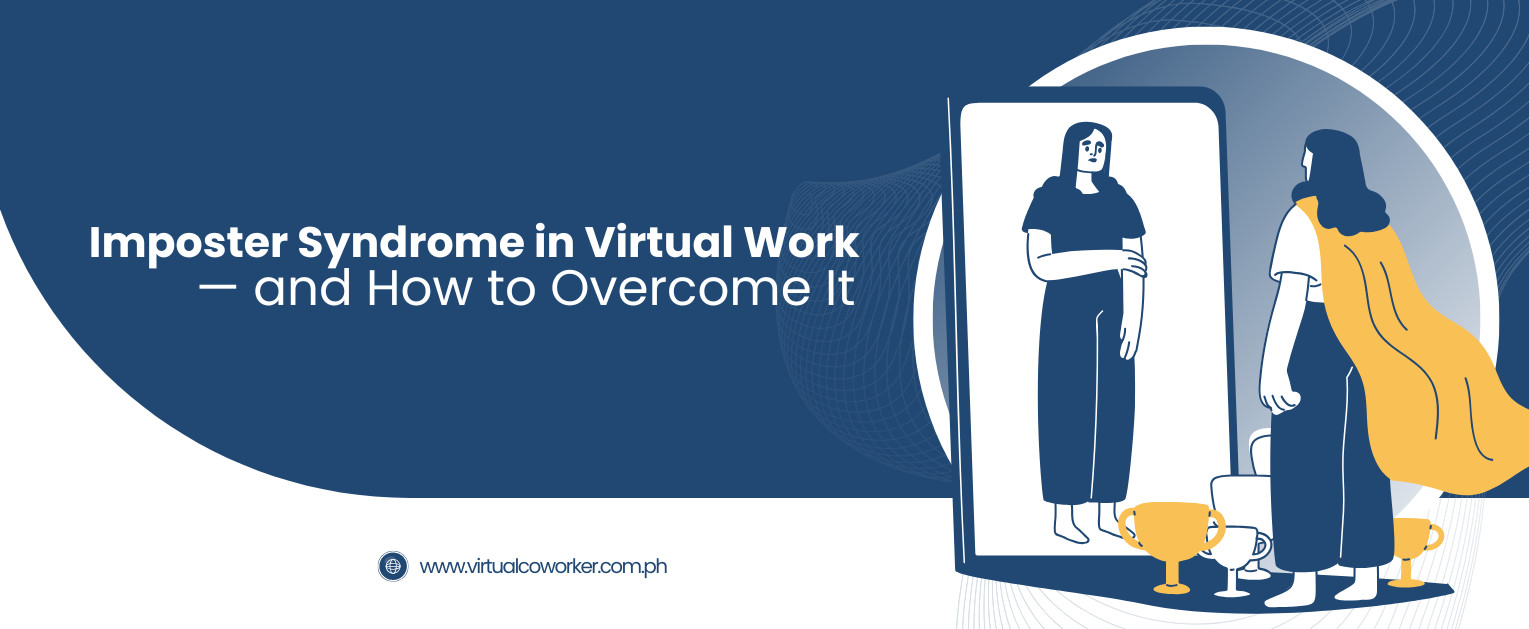Imposter Syndrome in Virtual Work — and How to Overcome It
You’ve landed the client. You’re doing the work. You’re showing up every day.
But still… that little voice creeps in:
“I don’t know what I’m doing.”
“They’re going to find out I’m not that good.”
“I just got lucky.”
If this sounds familiar, you’re not alone. That voice has a name: Imposter Syndrome. It shows up more than we’d like to admit, especially in remote work.
What Is Imposter Syndrome?
Imposter Syndrome refers to high-achieving individuals who struggle to internalize their accomplishments and live in fear of being exposed as a fraud. It’s a recognized psychological pattern that can affect confidence, job performance, and career growth.
A 2022 study found that 82% of workers experience imposter syndrome at some point in their careers. This experience is widespread, especially among high-performing individuals, freelancers, and remote workers.
Signs You Might Be Struggling with Imposter Syndrome
- You hesitate to apply for higher-paying roles or niche positions
- You avoid speaking up in meetings or offering ideas
- You dismiss positive client feedback
- You’re afraid to raise your rates, even when your skills have improved
- You constantly feel like others are more qualified
How to Overcome Imposter Syndrome as a Virtual Assistant
1. Track Your Wins with Data
Start documenting your work results, not just your tasks.
Example:
❌ “I handled email support.”
✅ “I reduced email backlog by 60% in 2 weeks and increased response rate.”
Numbers build credibility for you, and not just your client.
2. Reframe Your Internal Narrative
Instead of “I don’t know enough,” try:
➡ “I’m still learning — and I’ve handled new tools before.”
➡ “I figured things out in the past, I can do it again.”
3. Ask for Feedback
According to Gallup, employees who receive weekly feedback are 3.6x more likely to be engaged. Even as a VA, feedback helps anchor your sense of value.
Ask questions like:
“What do you find most helpful about my work?”
“Is there anything I can improve or continue doing?”
4. Join Communities
Whether it’s a Virtual Coworker internal channel, a VA Facebook group, or a LinkedIn space, being surrounded by fellow VAs reminds you that everyone struggles at some point. Hearing others share their stories will remind you: You’re not alone.
5. Upskill Without Overthinking
Enroll in short courses that improve your expertise (e.g., AI tools, content automation, client communication), but don’t wait until you “feel ready” to charge more or apply for better jobs.
We suggest starting with platforms like Coursera, Skillshare, Canva Design School, and even Google’s free certifications.
Final Thoughts
Impostor syndrome might visit, but it doesn’t have to stay.
You’re not here by accident. You’ve put in the hours. You’ve earned your skills.
And most importantly… You bring value.
At Virtual Coworker, we help Filipino VAs find long-term roles with clients who recognize and appreciate their work. We also provide onboarding support and a community that reminds you that you’re more than enough. Explore WFH opportunities now!







